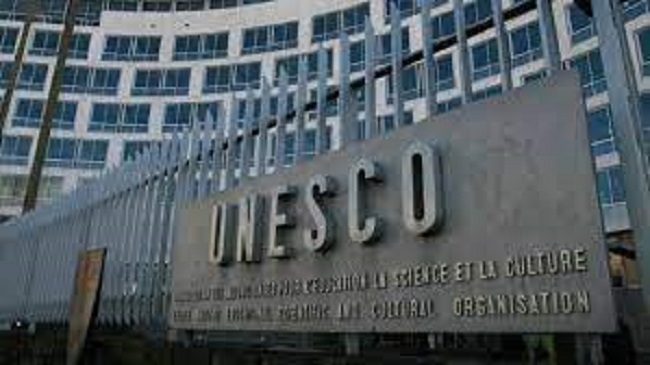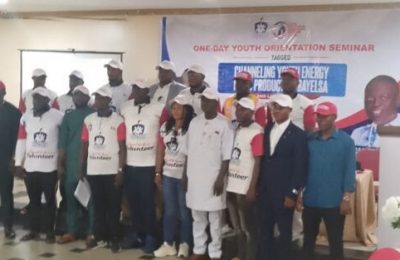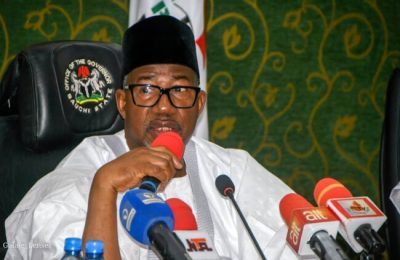
The United Nations Educational, Scientific and Cultural Organisation (UNESCO) has urged the Federal Government to develop a school curriculum that is relevant to its national needs.
UNESCO’s Director for the International Bureau of Education (IBE) Mr. Ydo Yao, made the call at a 4-day capacity building workshop organised by the UN agency for officials of the Ministry of Education in Abuja.

The workshop is in line with the Transforming Education Summit (TES), held in New York in September 2022, which reiterated that TES must more than ever, be a priority for government, development partners, civil society, and multilateral agencies.
In a statement on Wednesday, the UN agency said “the need for this action is evident in the triple crises of equity and inclusion, quality, and relevance of education.
“Part of the commitments toward addressing these crises is making curriculum relevant for assuring quality in education and ensuring that values, knowledge, and skills needed to thrive in present day complex world are transmitted through the education system.
“Curriculum is a central and irreplaceable component of any educational policy and pivotal in the transformation of Education. To achieve SDG4 which seeks to “ensure equal access to quality education for all and promote lifelong learning opportunities”, there must be a rethinking of curriculum contents and pedagogical approaches.”
Speaking at the workshop in Abuja, Yao lamented that there are many Nigerians and Africans who have gone to school and are qualified but have no jobs because of their nature of training.
“First of all, is the relevance of learning. You know, there are many Nigerians and Africans who have gone to school. They are qualified. But they don’t have jobs. And this is a global challenge for Africa. And is because of the relevance of the training.
“Whereas we have some areas that are not exploited at all. And where there is a big potential for job creation. We are continuing to teach people and learners about areas that used to be very relevant in the past. Today they are no longer relevant but we are still continuing the same things for 40 years. So how are we rethinking our education to make sure what we are offering is really what is needed?
“These are questions that we need to ask and all these have to be part of a process of reforms that can be undertaken by people who are trained, and who have the skills to do it. And this training is about that,” he said.
According to him, no education sector can be transformed if its curricula are not transformed, adding that curriculum is for education, what a constitution is for a democracy and that means it’s at the heart of education.
“So, when you talk about education, you are talking about content, programmes and learning. So, if you want to transform education, and you don’t transform what is at the core of it, which is the learning, the content and the programmes, your transformation has no meaning,” he said.
While stating that the school should not be a cemetery for culture, he said “schools, instead of being the place where I will go and lose what is going important for my culture, my community, school should rather be where I go, and I meet my culture.”
On his part, the Minister of State for Education, Hon. Goodluck Opiah, described the workshop as very apt and timely training and a step in the right direction, adding that this is the first time Nigeria will be benefiting from such a gesture from UNESCO-IBE in spite of being a member state, and the Nigerian Educational Research and Development Council (NERDC), serving as the President of IBE Council from 2014 to 2016.
Opiah said training and capacity development are critical avenues for systems strengthening and repositioning national operational frameworks for optimal performance.
He noted that since the curriculum is dynamic, opportunities for capacity building on curriculum development and implementation should be regular to keep abreast with new knowledge and strategies.
The minister said: “We recognize the fundamental role of curriculum in the drive for the attainment of globally agreed goals and country-specific aspirations. It remains the singular instrument capable of transforming the human capital base of a nation for effective contribution to nation-building and development.
The minister added that Nigeria is committed to the logical conclusion of all aspects of the curriculum review process.
Also speaking, the Executive Secretary of NERDC, Prof Ismail Junaidu, said the government was committed and deliberate in its vision to bring change to the Nigerian education sector as articulated in the Ministerial Strategic Plan, 2016 to 2018 and later 2018 – 2022.
The capacity development training being conducted by UNESCO-IBE is aimed at strengthening the capacities of specialists and officials of the ministry on eight thematic modules ranging from policy dialogue and formulation, curriculum change, curriculum design, system management and governance, development of textbooks and other teaching and learning materials, among others.
READ ALSO FROM NIGERIAN TRIBUNE







